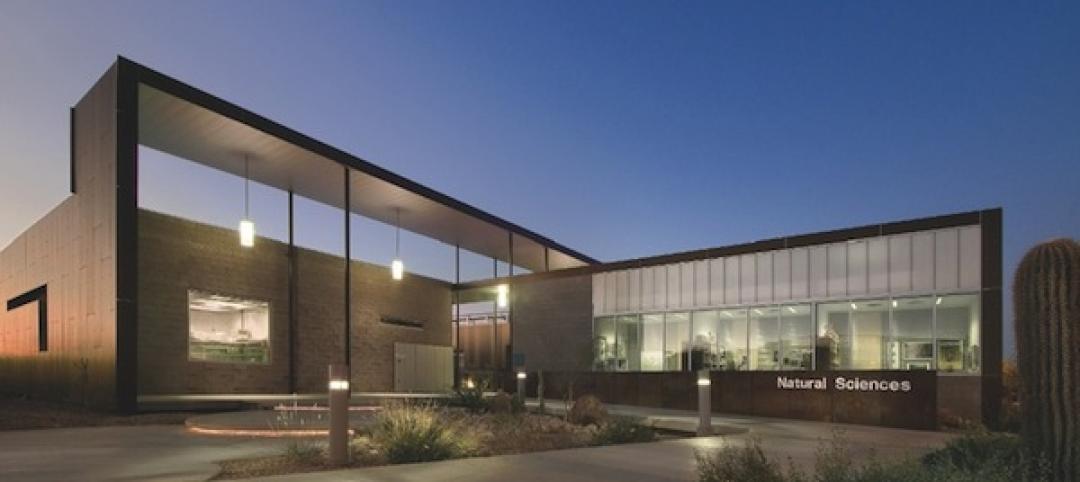NELSON, the Philadelphia-based interior design firm celebrating its 40th anniversary this year, has merged with two other firms, Cope Linder Architects and KA Architecture, to position itself as a full-service architectural and design outfit across multiple nonresidential building types.
The combinations became effective on June 1.
Founded in 1977, NELSON has steadily expanded for more than 15 years, primarily through acquisitions. In the past two years alone, it bought EHS Design and Marvin Stein Associates in Seattle, AAI in San Jose, and VeenendaalCave in Atlanta.
John “Ozzie” Nelson, Jr., NELSON’s Chairman and CEO, tells BD+C that his company’s marriages with Cope Linder and KA are the first of a series of mergers that NELSON plans to announce this year. Nelson says his company in 2017 would double its revenue to around $200 million and its workforce to “north of 1,200” from 625 at the start of the year.
Nelson and Ian Cope, AIA, LEED AP, Principal with Cope Linder Architects, had been talking, on and off, for 27 months about bringing their respective companies together. Cope says his firm had also been approached by two other suitors—including a Canada-based engineering firm—which it ultimately rebuked, he says, because it feared it might lose its identity with clients “who are concerned about all of this massive absorption of AEC firms” going on in the industry.
The addition of 50-year-old Cope Linder, also based in Philadelphia, makes NELSON that city’s third-largest studio, with more than 125 employees there. Cope Linder is best known for its work in the commercial, hospitality, gaming, and entertainment sectors. One of the first projects to be completed under the combined company will be the 51-story, 773,000-sf W and Element Hotel in Philadelphia, which opens next year.
Craig Wasserman, RA, Executive Vice President at KA Architecture, says his firm has been predominantly a core and shell builder and planner. It has tried to diversity on its own, “but it never worked out,” he explains. The merger with NELSON, on the other hand, “is the perfect compliment,” and allows KA to go to market as a full-service firm. “We’ve been telling our clients about this merger, and their reaction has been fantastic,” says Wasserman.
Cleveland-based KA Architecture—which was founded in 1960 and, prior to the merger, was into its third generation of ownership—has lent its design services to, among other projects, retail centers, mixed-used developments, and hospitality. Its merger with KA represents Nelson’s third location in the Midwest. The 1.3-million-sf Liberty Center in San Francisco will be the first major project completed under the new brand KA Architecture, A Nelson brand. (KA is the Executive Architect on this project.)
KA and Cope Linder are also forming a core-and-shell practice within NELSON, says Wasserman. Nelson states the combinations place NELSON more competitively into the high-rise architecture market.
The mergers also allow NELSON to launch a newly formed Hospitality Practice, and to beef up its Retail Practice.
Merging for the right reasons
Diversification is certainly one of the drivers behind NELSON’s acquisitive streak. For example, it is close to announcing another acquisition of a firm in New York that surveys and inspects buildings. Under Title 11, buildings over six stories high are required to be surveyed every five years. The firm NELSON would acquire already handles 800 of the 14,500 buildings in New York that fall under that regulation.
NELSON also runs a $13 million MEP engineering firm under a separate brand. But Nelson has never been a believer in combining architecture with other disciplines, such as engineering or building surveying, under one roof. He thinks the better solution to integrate vertically is to create holding companies to run those businesses separately, as it will the core-and-shell entity.
“Culture trumps everything else” when it comes to merging companies, says Nelson, speaking from experience. “It’s important for companies to look at the complete nature of coming together, and to be realistic.” He observes that, too often, smaller firms want to merge with larger firms just to take advantage of their marketing and sales clout without giving enough thought to how such a move might impact their employees and customers.
Nelson confirms that the managements of Cope Linder and KA are remaining with the company. He says NELSON looks for acquisition partners whose managements want to stay on with the combined firm.
When asked why so much AEC consolidation seems to be happening all of a sudden, Nelson says that relationships between firms and their clients don’t matter as much as they used to. “Everything has become a beauty competition,” and size, he says, has become a more important criterion to be considered for certain projects.
In the future, he says that NELSON will be looking to strengthen its position in Texas and the Washington, D.C. market.
Related Stories
| Feb 21, 2013
AIA College of Fellows awards 2013 Latrobe Prize for 'The City of 7 Billion'
The American Institute of Architects (AIA) College of Fellows has awarded the 2013 Latrobe Prize of $100,000 for the proposal, “The City of 7 Billion.”
| Feb 21, 2013
BD+C's 2011 White Paper: Zero and Net-Zero Energy Buildings + Homes
We submit our eighth White Paper on Sustainability in the hope that it will inspire architects, engineers, contractors, building owners, developers, building product manufacturers, environmentalists, policymakers, government officials, corporate executives, officeholders, and the public to foster the development of net-zero energy buildings and homes.
| Feb 21, 2013
BD+C's 2008 White Paper: Green Buildings + Climate Change
In this White Paper, we provide concrete ways in which AEC professionals can have a positive role in addressing climate change.
| Feb 21, 2013
Holl videos discuss design features of Chengdu ' Porosity Block' project
Architect Steven Holl has released two short films describing the development of Sliced Porosity Block in Chengdu, China.
| Feb 21, 2013
Construction team chosen for world's tallest building in Jeddah, Saudi Arabia
Construction team chosen for world's tallest building in Jeddah, Saudi Arabia.
| Feb 21, 2013
Stephen C. Wright joins Leo A Daly as Managing Principal in D.C.
International architecture, planning, engineering, interior design and program management firm LEO A DALY welcomes Stephen C. Wright, AIA, as the new managing principal of the Washington, D.C., office. Wright will oversee the D.C. team in executing federal, local government, private and non-profit projects and pursuing new business opportunities in markets including aviation, corporate and commercial, higher education, hospitality and institutional facilities.
| Feb 20, 2013
Architecture Billings Index sees strongest growth since 2007
The American Institute of Architects reported the January ABI score was 54.2, up sharply from 51.2 in December. This score reflects a strong increase in demand for design services.
| Feb 19, 2013
'Pop-up' proposal would create movable cultural venue for NYC
The Culture Shed, a proposed 170,000-sf project for New York City's Hudson Yards development, could be the ultimate in "pop-up" facilities.

















